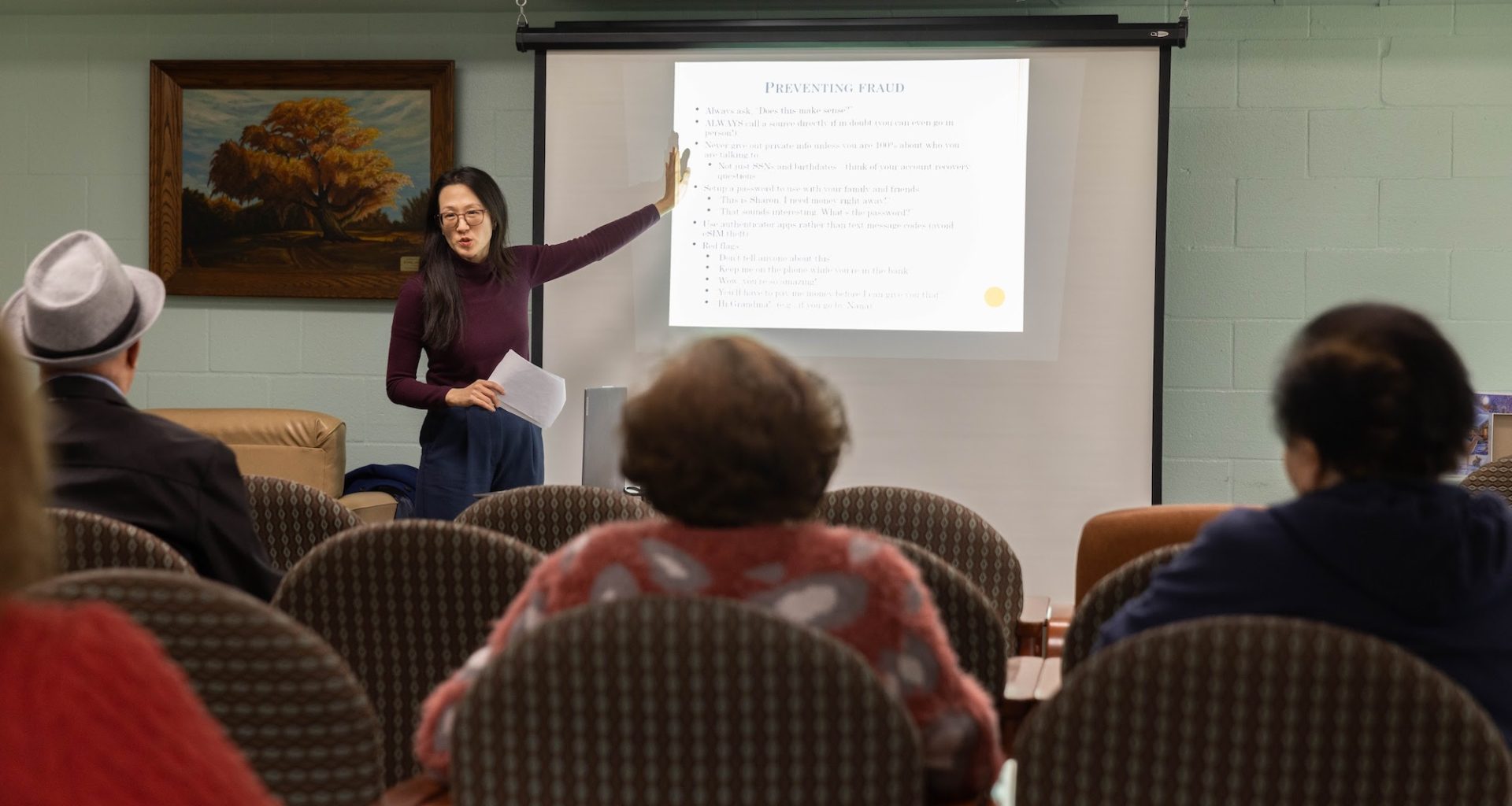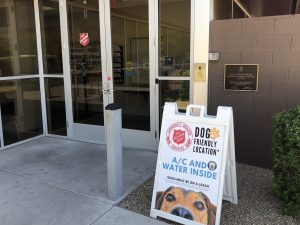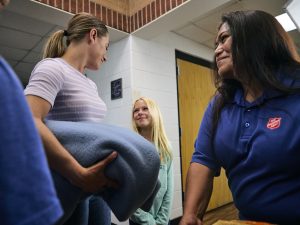In the age of AI, The Salvation Army partners with experts to help seniors avoid financial scams.
Last year, 93-year-old Kathleen O’Haver, a long-time resident of The Salvation Army El Cajon (California) Silvercrest Senior Residence, received a troubling phone call.
The person on the other end said they were from O’Haver’s bank and she had been defrauded. They wanted to fix the issue but needed some information first.
“I trusted them,” O’Haver said, “So I answered the questions.”
She shared her Social Security number, her bank account number and her Medicare information. When the person on the phone kindly asked O’Haver about her life—her first pet, her cousins’ names, her favorite color—she told them.
The next day, O’Haver went to Lavonna Connelly, Silvercrest service coordinator, to tell her about the call. Only then did O’Haver understand when the real fraud happened. The scammers impersonating her bank walked away with her account numbers and all the information they needed to answer security questions. All her money, her health insurance and her credit were at risk.
“I felt dreadful,” O’Haver recalled.
She isn’t alone.
The Internet Crime Complaint Center (IC3) recorded over 100,000 elder fraud cases in 2023—a 14 percent increase from the previous year. As artificial intelligence (AI) advances, experts expect these numbers to climb even higher.
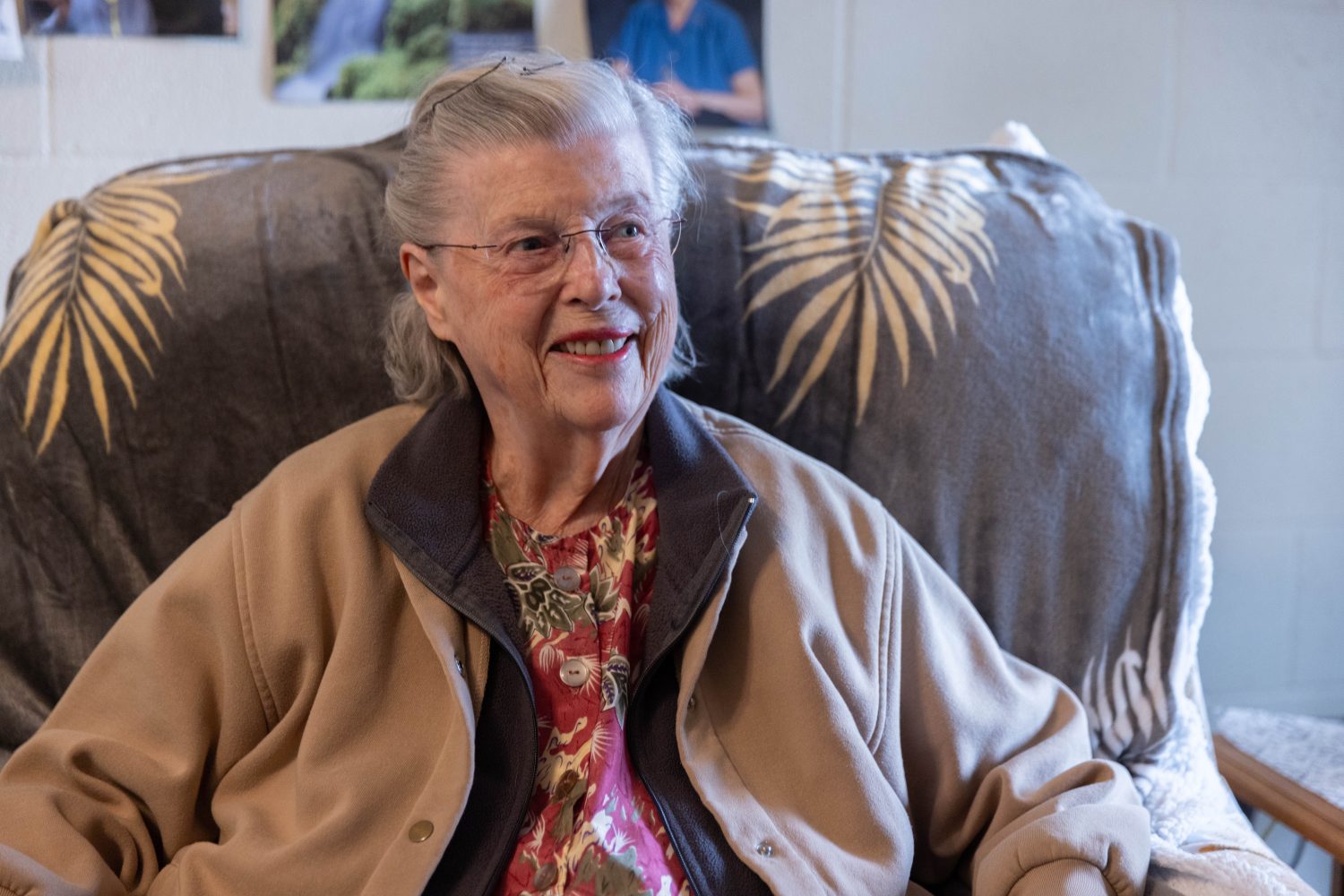
“We’re seeing criminals leverage AI as a force multiplier,” said FBI Supervisory Special Agent Nicole Gordon. “They’re using AI-generated images and voice cloning technology to mimic loved ones in distress.”
These “grandparent scams” manipulate victims’ emotions, leaving them feeling foolish and betrayed once they discover the deception. With average losses approaching $34,000 per incident, these scams hit low-income seniors particularly hard.
“Most of our residents live on Social Security only, which averages around $1,200 a month,” said Territorial Silvercrest Quality Assurance and Resident Services Consultant Jo Stephanie Francisco. “Not very much to pay rent, pay your medical bills and pay for food and prescriptions. It doesn’t leave a whole lot on the table.”
While technology enables these scams, it also connects seniors to loved ones and essential services. That’s why Salvation Army Silvercrests—federally subsidized residences serving some 3,000 seniors across 37 locations in the western U.S.—invite experts to teach residents about safety navigating digital landscapes.
Representatives from Senior Medicare Patrol (SMP) and Elder Law and Advocacy describe common scams, discuss reporting procedures and answer questions. Research from the University of Southern California Center for Economic and Social Research and the Financial Industry Regulatory Authority confirms this type of repeated education helps people successfully identify and avoid fraud.
“The idea is to stop it before it happens by doing the education, repeating the education and helping residents to understand that they have other resources that they can come to if they’re not sure,” Francisco said, noting Silvercrest residents can bring suspicious items to the on-site service coordinator for review.
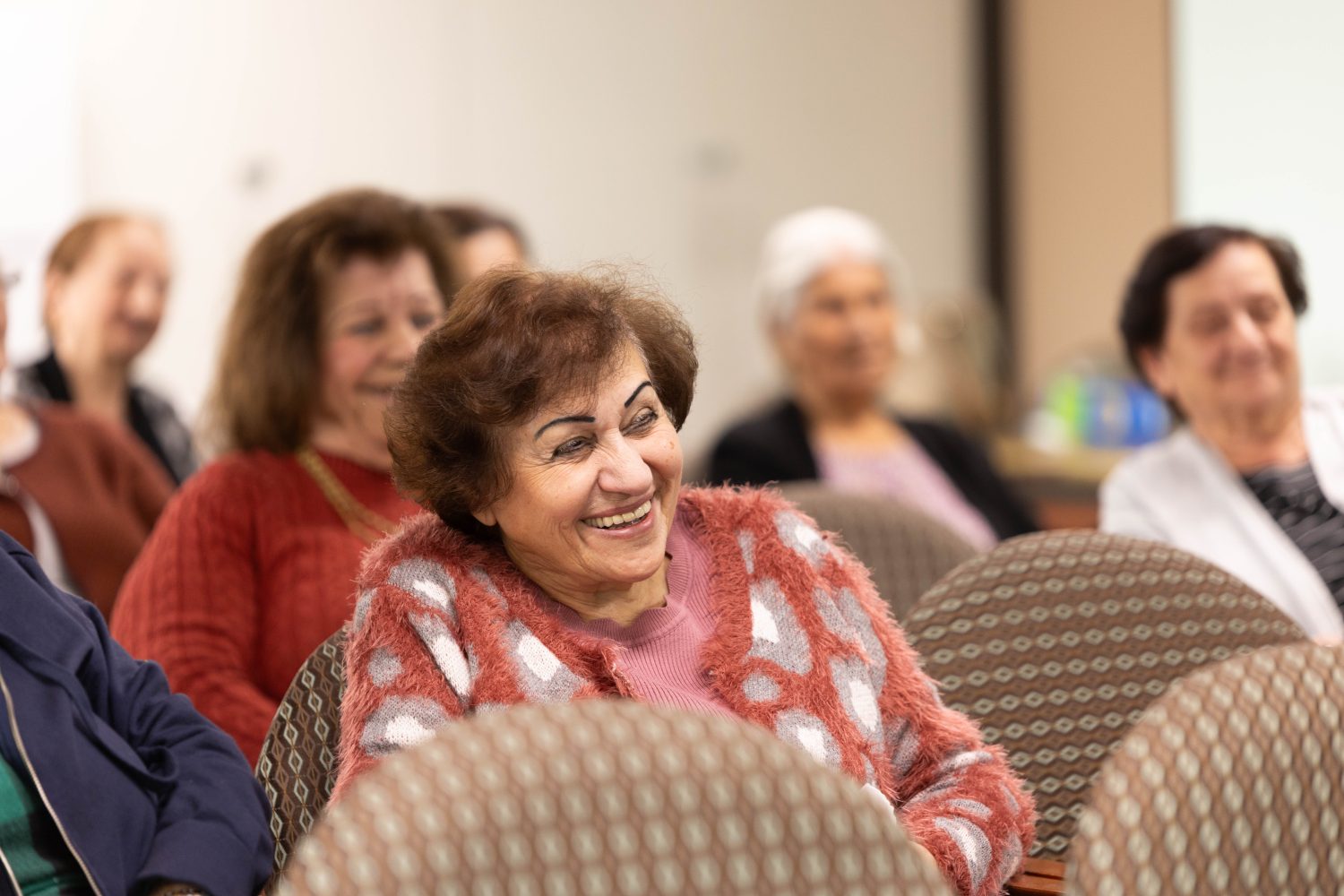
Beyond Silvercrests, The Salvation Army extends fraud prevention across communities. In Chico, California, the corps partners with local banks to offer quarterly financial literacy classes for seniors. According to then Corps Officer Lt. Jeffrey Boyd, many attendees have already fallen victim to scams.
“Scams are sophisticated,” Boyd said. “And it really does take a professional to help them differentiate between actual bills and what to look for.”
For him, the program fits right in with The Salvation Army’s overall goal.
“The mission of The Salvation Army has always been ‘Soup Soap and Salvation’ and in this instance, it’s not necessarily soup and soap, but we are meeting a practical need,” Boyd said. “It’s love in action.”
Back in El Cajon, Connelly’s quick action helped O’Haver minimize the damage. They immediately informed her bank and froze her credit. Though her information remains compromised, her funds remain secure.
Now O’Haver knows what to look out for—warning signs like a sense of urgency, grammar errors and requests for small payments. Regular fraud prevention classes at her residence keep all residents updated on evolving tactics.
“I would not fall for it again,” O’Haver said. “One incident is enough.”
Do Good:
- Are you best suited to Do Good in disaster relief? Mental health? Social justice? Take our What’s Your Cause quiz and discover where you can make the biggest impact today.








